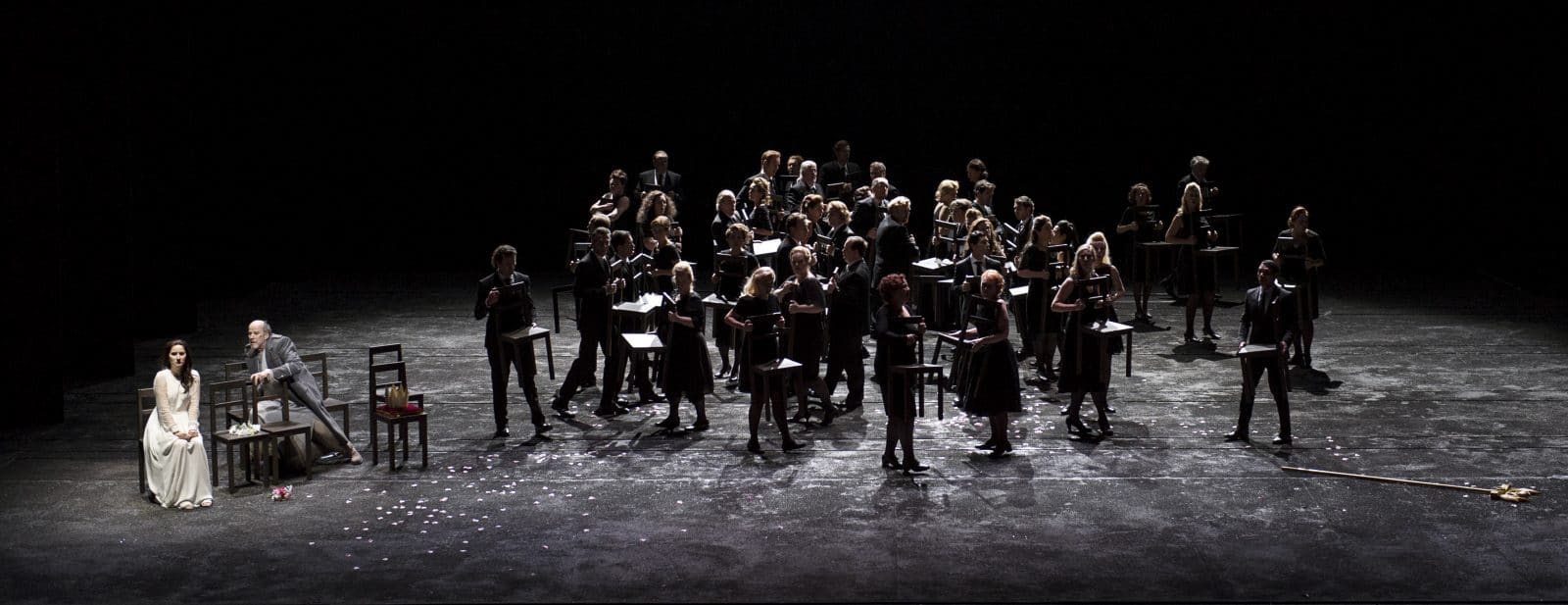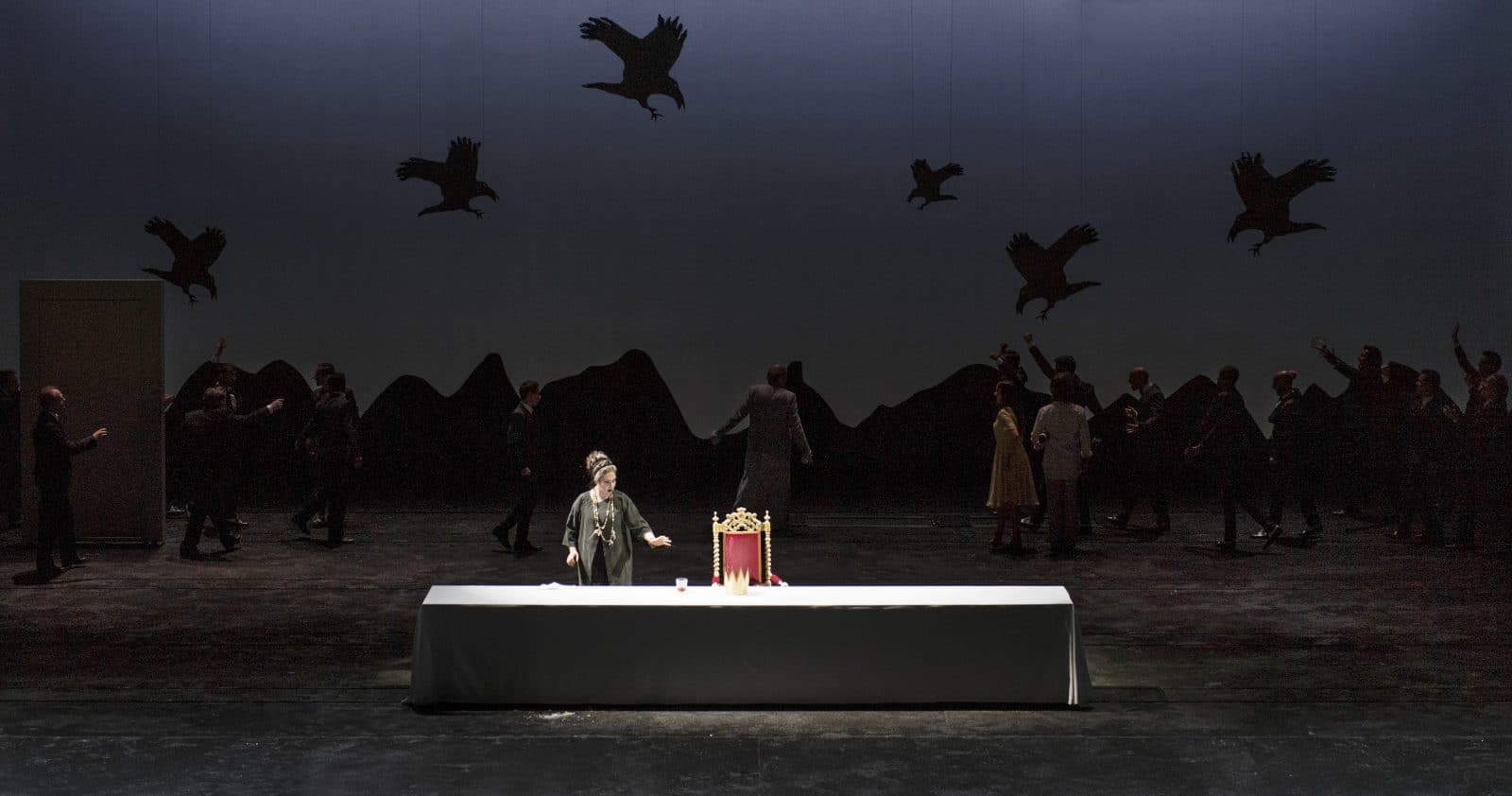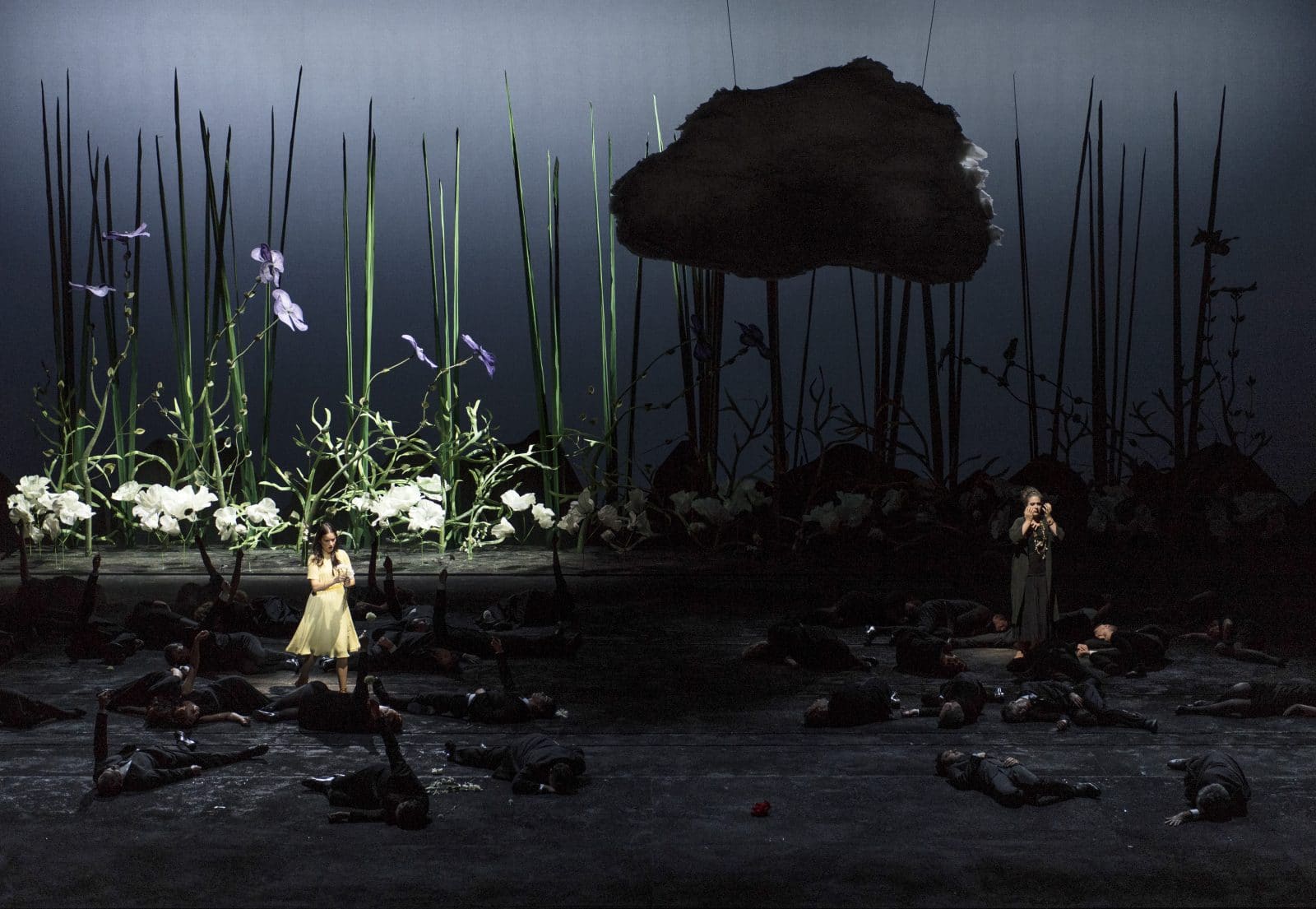To get right to the point: the new production of the oratorio Jephta by Handel at The National Opera is magnificent. Decors, costumes, staging and performance: all top-notch. So after the premiere Wednesday 9 November, performers and production team received a well-deserved ovation from a sold-out Stopera.
It is no mean feat to turn the slight dramatic development of Handel's oratorio into a compelling performance, but director Claus Guth succeeded with flying colours. Whereas earlier this year he presented the story of Don Giovanni debunked with far-fetched 'inventions', he now made Jephta's drama palpable.
In exchange for victory, the Israelite warlord Jephta promises to sacrifice the first living creature he finds upon returning home - and let that be his daughter Iphis. A tragic but simple fact that, under the hands of librettist Thomas Morell and composer Georg Friedrich Handel, developed into a nearly three-hour-long oratorio.
Dizzyingly varied choral passages
But what a music! Jephta bulges with insanely beautiful choral parts in a dizzying variety. Polyphonic passages with swirling vocal lines alternate with solemn chorales, martial exuberance and stirring rhythmic passages. The singers of DNO's choir glorify in their roles and, despite the often fast tempi, manage to convey their difficult parts with empathy and understanding.

When Jephta discovers his daughter Iphis and realises that he will have to kill her, the choir sets up 'How dark, O Lord, are Thy decrees'. Seated like the congregation in a church service, they lament with increasing agitation the abominability of God's commandments. Yet they will obey them because 'whatever is, is right'. Retrieved from right they abruptly put their fists in the air. A goose-bump moment that was rewarded with an open canvas.
Man of flesh and blood
The soloists are also excellently chosen. American tenor Richard Croft makes Jeptha a flesh-and-blood human being. His voice is not big, but he sings sensitively and carefully and his colouratures are smooth. He has a strong stage presence and when he lovingly embraces his daughter Iphis in the third act, tears spring to your eyes.
Austrian soprano Anna Prohaska is in her element, effortlessly singing Handel's highly virtuosic parts with her tinny soprano voice. Completely natural is her baking love for Hamor, the equally great singing and acting countertenor Bejun Mehta. Together they form a sparkling love couple. In the third act, Iphis has grown into a mature woman, accepting her fate with dignity and stoicism out of love for her father.
German alto Wiebke Lehmkuhl shines as her mother, who foregrounds the coming drama right from the first act, against a blood-curdlingly beautiful stage setting of descending vultures. In the smaller roles, Florian Boesch convinces as Jephta's brother Zebul and soprano Ana Quintans as the angel who saves Iphis from certain death at the last moment.

Crushing simplicity
The stage setting is of crushing simplicity and beauty. A forest of giant flowers serves as the battleground, a long dining table represents the royal chambers and Iphis sings her farewell aria against a bright yellow ray of light from heaven, as if she were a saint.
That she is eventually not killed but has to go through life as a virgin - as a nun - is an anachronism that one gladly forgives Handel and his librettist for. Guth places Iphis as a statue of the Virgin Mary on a pedestal, thus once again adhering to the Christian tenor of the libretto.
There is even room for humour. At regular intervals, for instance, letters are wheeled onto the stage, forming the phrase 'It must be so'. With this opening line, Zebul sets the tragedy in motion; Iphis and Hamor play a love game in and around the letters B and E. And as Iphis wanders across the battlefield, the dead willingly hold up flowers with which she forms a bouquet for her mother.

World level
Concerto Kölln plays at world-class level, following conductor Ivor Bolton's impassioned directions flawlessly and with apparent pleasure in playing. Right from the overture, they prove their quality with a velvety tone, impeccable rhythm and refined dynamics. Bolton keeps the momentum going well and manages to keep even the otherwise often dull recitatives lively and colourful. At the same time, he breathes with the choir and soloists, whom he gives plenty of space: even when they sing at whisper level, they are not drowned out by the musicians.
An odd one out are Ernst Munneke's darkly droning electronic interludes, used to create atmosphere. In itself a nice invention, but they sometimes unnecessarily hold up the action, especially as they are not organically incorporated into the ensemble playing. Moreover, I would have loved it if Guth had shortened the last act, as he did for Don Giovanni. Indeed, after the angel speaks the redeeming word, the oratorio drags on for another half hour and the tension sinks in.
So those are the only flaws, otherwise this production of Jephta like a house.
